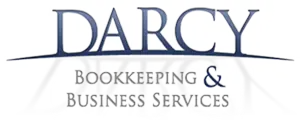


Neglecting bookkeeping is like skipping routine check-ups: minor issues can turn into major complications. But between managing patient appointments, billing Medicare, processing insurance claims, and overseeing staff, bookkeeping often falls to the bottom of the to-do list in the health industry.
The good news is that with the right systems, habits, and professional support, bookkeeping for health professionals can be straightforward and manageable. Clear financial processes not only save time and reduce errors but also keep you compliant and give you a clear picture of your finances, making it easier to plan for growth and focus on delivering great care.

Financial management for clinics is about more than just taxes. Accurate records allow you to track income from multiple sources such as patient payments, Medicare, insurance claims, and grants. When you understand where your revenue is coming from, cash flow is more organised and predictable.
Legal and compliance obligations are another major reason bookkeeping cannot be overlooked. Small business bookkeeping ATO requirements demand accurate records, timely BAS lodgements, and adherence to GST obligations. Falling behind or misreporting can result in fines, penalties, or audits.
Finally, clear financial records provide a clear view of your practice. You can identify profitable services, manage expenses, and plan for future growth. For allied health professionals, this means more time to focus on patient care while your practice remains financially healthy.
Allied health practices face challenges that many other small businesses don’t. Managing patient billing, Medicare, and insurance claims can be complex and time-consuming. Each payment type has its own reporting requirements and errors can lead to delays or rejected claims.
Practices also often have multiple income streams, from private clients to government-subsidised programs, each requiring careful tracking. On the expense side, clinics have unique costs such as equipment purchases, staff salaries, professional memberships, and consumables, all of which need to be documented and categorised accurately.
Time constraints are also a big challenge in the industry. Allied health practitioners are busy seeing patients, managing staff, and running their clinics, leaving little time for bookkeeping. Financial tasks pile up which often results in not just stress but errors and potential compliance issues.
The key to successful allied health bookkeeping is simplicity and consistency. Here are some practical steps to make your bookkeeping for clinics more manageable:

Sometimes the best way to simplify bookkeeping for allied health practices is to call in expert help. Outsourced bookkeeping for allied health services allow clinics to offload financial tasks to professionals who understand the unique requirements of the industry.
Professional bookkeepers can manage everything from transaction entry and reconciliations to BAS preparation and payroll, giving you confidence that your records are accurate and compliant. They can also provide tailored bookkeeping tips for clinics, helping you optimise cash flow, claim all eligible deductions, and make better financial decisions.
When choosing a bookkeeping partner, look for experience in allied health practices, strong knowledge of GST and BAS for health practices, and a service that will work with your existing software.
Bookkeeping software for allied health practices, such as Xero with allied health integrations, allows you to manage invoices, track payments, and reconcile accounts efficiently. Practice management systems like Cliniko or Power Diary can also integrate with your accounting software, linking patient management directly to financial workflows. This reduces duplication, keeps records accurate, and ensures that billing and financial reporting are consistent.
Small business bookkeeping ATO requirements include accurate BAS lodgements, GST reporting, and payroll obligations. Allied health practices must also keep records for Medicare and insurance audits.
Common pitfalls to avoid include delayed BAS lodgements, unclaimed GST credits, or missing supporting documentation for expenses. Staying audit-ready is easier when you implement bookkeeping routines, maintain digital copies of all receipts, and ensure all transactions are correctly categorised.

Bookkeeping for allied health practices doesn’t have to be complicated. By using cloud-based software, automating tasks, keeping consistent records, and utilising professional support when needed, clinics can simplify their finances and focus on delivering excellent patient care.
Outsourcing bookkeeping saves time, reduces stress, and ensures compliance. If you’re ready to simplify your bookkeeping and improve your practice’s financial management, contact us today for expert support in allied health bookkeeping. Call us on 1300 728 875 or send an enquiry.
They include consistency, accuracy, completeness, objectivity, and timeliness. These principles form the foundation of all bookkeeping practices.
Single-entry bookkeeping is the simplest form, where each transaction is recorded once. It works for very small businesses, but most allied health practices benefit from double-entry systems or software.
Simplified bookkeeping focuses on easy-to-follow systems, consistent recording, and using tools like cloud-based software to reduce manual work.
Begin by separating business and personal finances, recording all income and expenses in a ledger or spreadsheet, and reviewing your accounts regularly to ensure accuracy.
